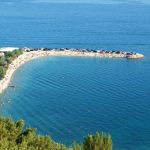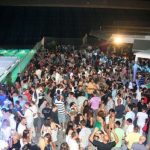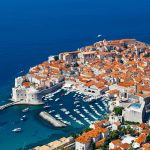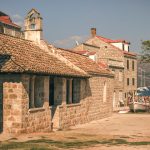September 15, 2019 – The VIII Mediterranean Games was held in Split from September 15-29, 1979. Today, we mark the 40th anniversary.
From the opening ceremony, which was held on September 15, 1979, to the closing ceremony, which was held on September 29, 1979, fourteen nations competed in 192 events across 26 different sports.
The Mediterranean Games hosted athletes who competed in 25 sports and 186 disciplines and forced Dalmatia to build capital facilities that at the time did not exist. While eight other cities in Dalmatia were involved, including Trogir, Makarska, Sinj, Hvar, Šibenik, Zadar, Omiš and Supetar, Split was the center of the event.
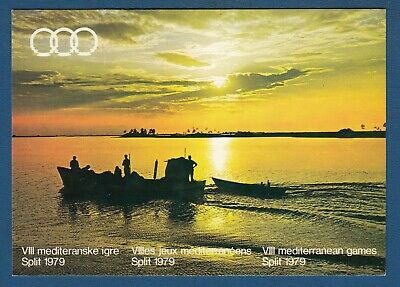
Postcard from the event
Recall, Split received a beautiful new stadium, Poljud, which at that time was one of the largest in Europe. A complex of pools was also built at Poljud, as well as a large and small hall at Gripe. A shooting range was constructed in Stobreč, and a complex of tennis courts and one for martial arts in Gripe. In addition to the HNK Split stadium, the Gripe basketball hall and court in Kaštel Gomilica were renovated.
Thanks to the Mediterranean Games, Split and many other cities in Dalmatia received a variety of new sports facilities. Trogir received a new sports hall, while Omiš renovated their football field. The Hippodrome in Sinj was updated, a field for archery in Supetar on Brač was built, a rowing track in Zaton was made, Zadar and Makarska received a new football field, and Hvar even received a new sports hall.
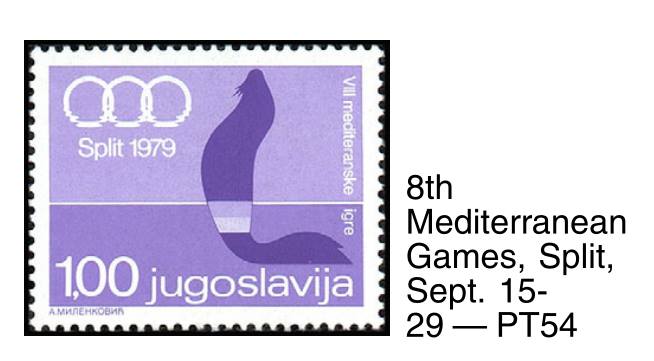
Postage stamps from the event
The entire visual concept of the Mediterranean Games in Split is credited to the well-known and multi-award-winning Croatian designer Boris Ljubičić – a man with origins in Sinj but an address in Zagreb. The simple three white circles are still revered in the graphic design world today.
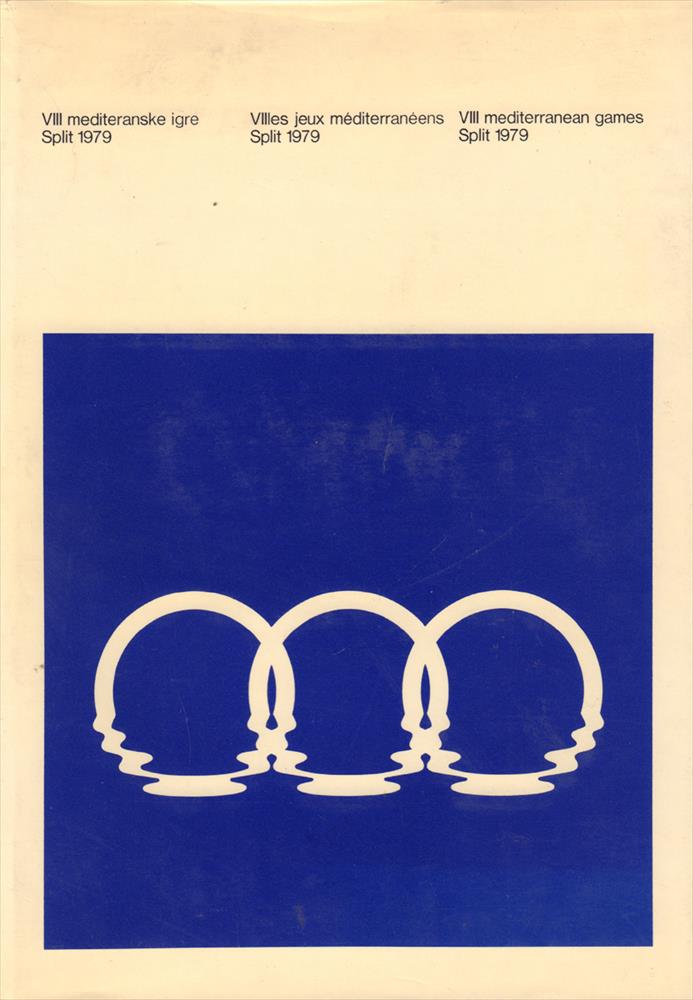
Design by Boris Ljubičić
The 8th Mediterranean Games saw the participation of 2408 athletes (out of which 399 were women), 882 judges, 25 delegates and 811 sports workers, which added up to 4126 accredited persons. Most of the athletes were represented by the countries of Yugoslavia (409), Italy (368), France (287) and Spain (263). The athletes competed in a series of sports, including athletics, cycling, boxing, weightlifting, gymnastics, hockey, wrestling, sailing, judo, kayaking, equestrian sports, basketball, fencing, football, volleyball, swimming, rugby, handball, diving, table tennis, shooting, archery, tennis, water polo and rowing.
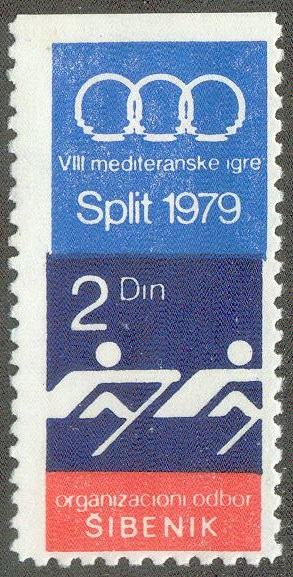
The city of Split did not only receive functional sports facilities for the event, but they also received accompanying infrastructure. A large passenger terminal was built at Resnik (Split) Airport, and a naval terminal was built in the City Port, as well as a new RTV Center. The tunnel through Marjan and the road and rail routes created preconditions for solving traffic problems in the city and its surroundings, and a series of interventions on the reconstruction of electricity, water supply, and sewage systems, and telecommunication connections were carried out.
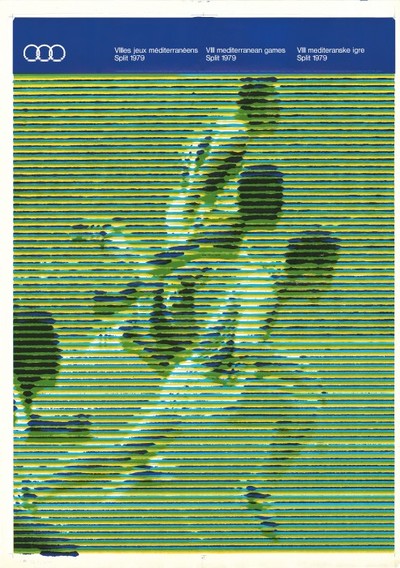
It was necessary to complete the second phase of the construction of the Hotel Marjan and Medena to accommodate the athletes and assistants. The capacity of Hotel Medena, before the start of the additional construction of the bungalow, was 1240 beds, and for the Mediterranean Games, the capacity was increased to 1956 beds. Marjan’s capacity rose from 400 to 610 beds. Within the hotel, there was also a congress hall for 600 guests. During the event, the main press center was located there. The Hotel Lav hosted sports workers and representatives from 14 countries who participated in the games. The Bellevue Hotel and the Adriana and Luxor restaurants were also reconstructed. All this construction and the reconstruction of existing facilities cost 2.6 billion Dinars. Split, thus, acquired all the preconditions for accommodating the top athletes in these capital facilities.
https://www.youtube.com/watch?v=v=EGeNP4jOo_U
The opening of the Mediterranean Games in Split saw a large number of sports and political figures including Michael Morris (Lord Killanin), president of the International Olympic Committee, Josip Broz Tito, President of Yugoslavia and Stane Dolanc, chairman of the Committee of the 8th Mediterranean Games. The Games were opened at Poljud in front of 50,000 spectators.
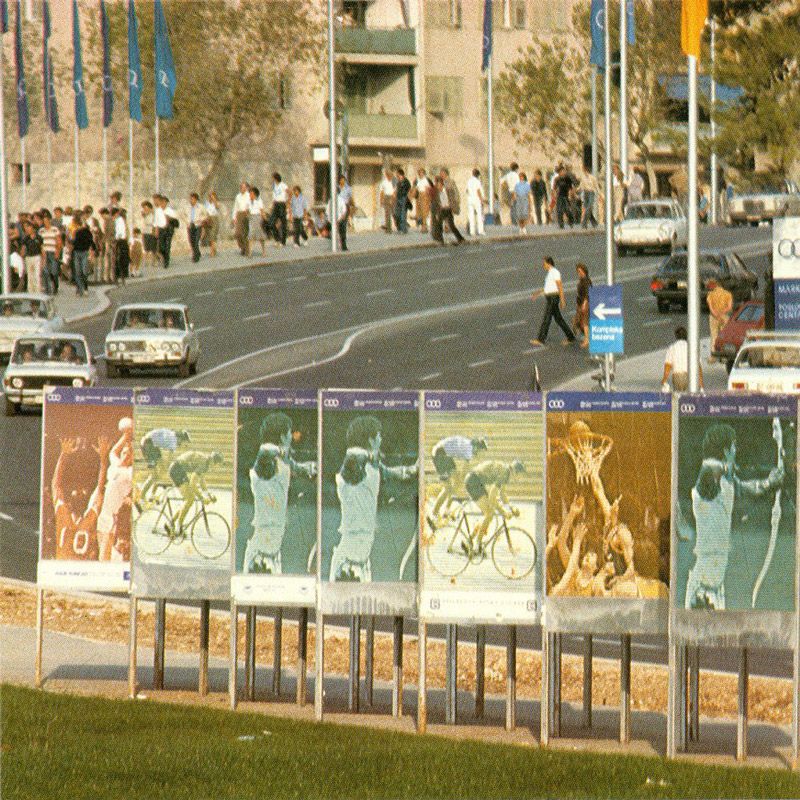
GKMM
Yugoslavia took home the most gold medals from the event (56), followed by France (55) and Italy (49).
Excerpts translated from Mladen Cukrov on GKMM
To read more about lifestyle in Croatia, follow TCN’s dedicated page.



